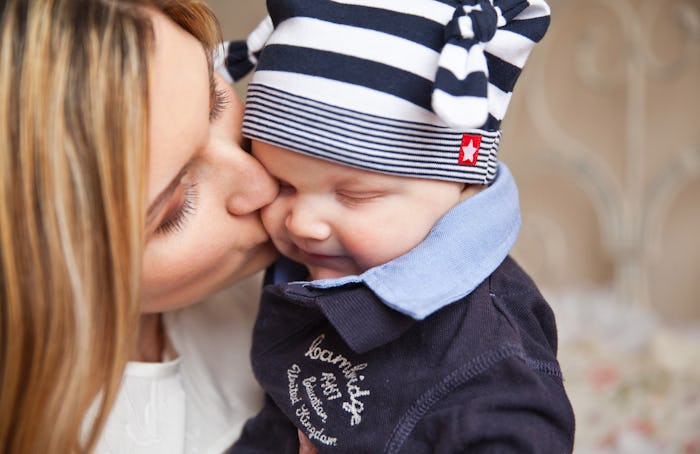News

How Many Millennial Parents Are Unmarried? Millennials Are Starting A New Trend
The days of shotgun weddings — an old-fashioned term describing the hurried nuptials stemming from surprise pregnancies that forced parents into wedlock — appear to be long gone. In the early 1960s, two-thirds of couples experiencing premarital pregnancy rushed to the altar in response, according to USA Today. But a 2014 study from Johns Hopkins University revealed a somewhat shocking answer to this question: How many millennial parents are unmarried? According to those researchers, a whopping 57 percent of male and female parents ages 26 to 31 were having kids outside of marriage. Newer analysis out of Johns Hopkins and the University of Melbourne, published in July 2016, shared further details about which specific sectors of today's millennial parents are either delaying marriage or eschewing it entirely.
Overwhelmingly, what this research has found is that millennials without college degrees are more likely to forgo what's long been referred to as the traditional American family — i.e. children born to married parents. These young Americans often live in areas with high levels of income inequality and the fewest medium-skilled jobs, characterized as employment that requires only a high-school diploma but that still enables families to live above the poverty level, according to The Atlantic. For mothers without a degree but with some college education, the majority of births occur among those who are single or cohabitating with a partner.
Today's marketers and business leaders have taken a keen interest in millennials — loosely defined as those born between 1980 and 1996 — and how their attitudes, behaviors, and beliefs differ from members of other generations. And when it comes to marriage, the rate of which dropped to a record low in 2015, it's been proven millennials are in no hurry. Though a 2013 Gallup poll showed that a majority of millennials plan to marry eventually, many are holding off until their financial situation improves. Andrew Cherlin, sociology professor at Johns Hopkins, said the economy plays a role in millennials' marriage decisions because "men without well-paying jobs are not seen as marriage material," according to The Atlantic:
... Cherlin says his research shows the importance of strengthening middle-market jobs and training young adults for them, arguing that doing so would increase family stability. 'We'd have a larger percentage of children born to married couples, who tend to stay together longer than do cohabiting couples,' says Cherlin, via email. 'So improving job opportunities for high school graduates, something we'd like to do anyway, would benefit the family lives of young adults and their children.'
Fewer millennials opting for marriage reflects a growing disenchantment with marriage in general, and an increased belief that society would be "just as well off if people have priorities other than marriage and children," according to a 2014 report from Pew Research Center. Simply put, marriage is no longer seen as the pinnacle of successful adulthood. Rather, young adults are placing more importance on earning an education, achieving financial stability, and just living life on their own for awhile. Another interesting anecdote: In a 2014 study coinciding with the release of a new USA Network drama (Satisfaction), researchers found that 43 percent of millennials would "support a marriage model that involved a two-year trial — at which point the union could be either formalized or dissolved, no divorce or paperwork required."
Should the economy improve, perhaps millennial parents will return to the marriage fold eventually... so long as the pesky "till death do us part" bit no longer applies.